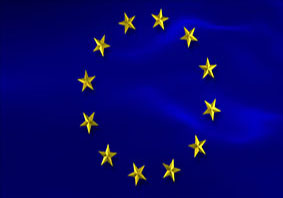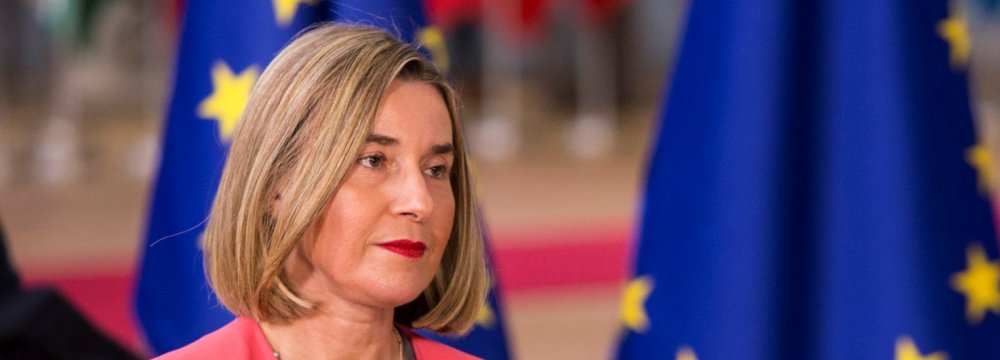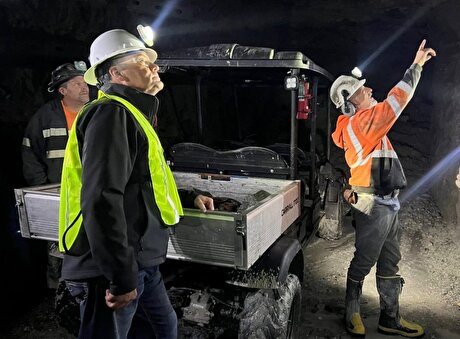
EU Galvanized to Defend Sovereignty Against US


In an interview with Livemint.com published after the New Year, Mogherini emphasized that trade with Iran remains legitimate under the framework of the nuclear deal the country signed with world powers in 2015.
The deal, formally known as Joint Comprehensive Plan of Action, came into effect in early 2016. It entailed Iran limiting the scope of its nuclear program in exchange of the abolition of international sanctions against the Islamic Republic.
However, in May 2018, US President Donald Trump announced his decision to abandon JCPOA. In the ensuing months, he imposed waves of "toughest ever" sanctions against Tehran.
"It is true that this situation has triggered a conversation on European economic sovereignty. We Europeans cannot accept that a foreign power—even our closest friend and ally—makes decisions over our legitimate trade with another country. This is a basic element of sovereignty and it is only natural that this reflection takes place, not only in Europe but in other parts of the world, too," Mogherini said.
Noting that the EU is working to preserve JCPOA, she stressed that despite US unilateral action, it has been verified that Iran has remained committed to the terms of the nuclear deal.
"We are working, as a union of 28 member states and with the rest of the international community, to preserve a nuclear agreement that has so far been implemented in full, as certified by the International Atomic Energy Agency in 13 consecutive reports. We do this because of our collective security: we do not want to see Iran developing a nuclear weapon, and the JCPOA is delivering precisely on that purpose," she said.
"I start by saying this because I often hear that, on this issue, Europe is motivated mainly by economic or trade considerations. That is not the case: we do this to prevent a nuclear non-proliferation agreement that is working from being dismantled and to prevent a major security crisis in the Middle East."
Acknowledging the need for European JCPOA signatories to justify Iran's staying in the accord by maintaining the trade flow between the Islamic Republic and the world, the EU top diplomat said, "Part of this work requires us to guarantee that firms wanting to do legitimate business with Iran are allowed to do so. This is what we are working on right now: tools that will assist, protect and reassure economic actors pursuing legitimate business with Iran."
Mogherini was referring to the Special Purpose Vehicle, a mechanism conceived by the EU as a clearinghouse that could be used to help match Iranian oil and gas exports against the purchase of EU goods, circumventing US sanctions based on the global use of the dollar for oil sales.
Germany and France have agreed to jointly host SPV when it is ready.
Earlier last month, Mogherini was quoted as saying that SPV could be ready by the yearend—a deadline that EU has seemingly failed to meet.
“I would expect this instrument to be established in the coming weeks so before the end of the year as a way to protect and promote legitimate business with Iran,” she was quoted as saying by Reuters.
Iran’s Patience "Not to Be Interpreted as Submission"
Iran has reacted “patiently and responsibly” to Europe’s tardiness in fulfilling its promises to avert the US sanctions against Tehran, but this approach should not be interpreted as submission, Iran’s ambassador to the European Union said recently.
In an opinion piece for Euronews, Peyman Sa’adat also highlighted Iran’s restraint in not abandoning JCPOA, after US President Donald Trump’s unlawful withdrawal last May, describing it as “maximum maturity, statesmanship and perseverance”.
“In fact, arch-enemies of JCPOA, expected Iran to withdraw from the deal, so that they could [build] a united front against the country. The Iranian leadership has denied them such a luxury so far,” he wrote.
Sa’adat noted, however, that the price Iran pays right now does not match its restraint.
“It would be, therefore, totally wrong and even risky to misinterpret Iran’s patience and to conclude that, Iran, at any price, will remain with the deal,” he wrote, addressing the European leaders who have urged Iran to stay in the deal in return for compensation after the US exit.
Subsequent to updating the Blocking Statue and renewal of the mandate of the European Investment Bank on Iran, the Special Purpose Vehicle, an entity intended to counter reimposed US sanctions by making it possible for companies to trade with Iran, was placed at the heart of Europe’s pledge.
The statute bans any EU company from complying with the US sanctions against firms investing in or doing business with Iran and the mandate adds Iran to the list of countries outside the EU, which are eligible for EIB lending.
Nevertheless, “while practicability of Blocking Statue or EIB’s mandate is under serious doubt, the much-pledged SPV has not arrived either”.
This situation, according to Sa’adat, makes Iran consider all viable and carefully considered options.
“In fact, the leadership has already instructed preparations for the eventuality if things go amiss,” he said.
Warning Against Economic Costs
Expressing concerns over the EU delay in implementing SPV, President of Iran-Switzerland Chamber of Commerce Sharif Nezam-Mafi recently said the timing of its implementation seems to be the main concern of Iranian authorities and traders.
"The Christmas and holiday season is likely to delay the effective date on which the system will start operating, which has unsettled Iranians about whether Europeans are really motivated to set up this system or not. In other words, the longer it takes to create this financial channel, the bigger the expenses on Iran’s economy, industries and trade will be," Nezam-Mafi said.
"The refusal to host SPV on the part of countries like Germany and France is an indication of the high risk of standing up against the US for EU member states. The experience of US penalties for some German and British banks over the previous round of sanctions shows it won’t be possible for major European banks to maintain financial ties with Iran."
Nezam-Mafi noted that the new financial channel will probably be formed with a newly-established bank with no dollar transaction, since almost all banks have financial transactions in dollar and are vulnerable to US sanctions.


Newmont nets $100M payment related Akyem mine sale

First Quantum scores $1B streaming deal with Royal Gold

Caterpillar sees US tariff hit of up to $1.5 billion this year

Gold price rebounds nearly 2% on US payrolls data

Goldman told clients to go long copper a day before price plunge

Australia pledges $87M to rescue Trafigura’s Nyrstar smelters in critical minerals push

Copper price posts second weekly drop after Trump’s tariff surprise

One dead, five missing after collapse at Chile copper mine

Idaho Strategic rises on gold property acquisition from Hecla

Codelco seeks restart at Chilean copper mine after collapse

US slaps tariffs on 1-kg, 100-oz gold bars: Financial Times

BHP, Vale offer $1.4 billion settlement in UK lawsuit over Brazil dam disaster, FT reports

NextSource soars on Mitsubishi Chemical offtake deal

Copper price slips as unwinding of tariff trade boosts LME stockpiles

SAIL Bhilai Steel relies on Danieli proprietary technology to expand plate mill portfolio to higher steel grades

Alba Discloses its Financial Results for the Second Quarter and H1 of 2025

Australia weighs price floor for critical minerals, boosting rare earth miners

Australia pledges $87M to rescue Trafigura’s Nyrstar smelters in critical minerals push

Fresnillo lifts gold forecast on strong first-half surge

US slaps tariffs on 1-kg, 100-oz gold bars: Financial Times

BHP, Vale offer $1.4 billion settlement in UK lawsuit over Brazil dam disaster, FT reports

NextSource soars on Mitsubishi Chemical offtake deal

Copper price slips as unwinding of tariff trade boosts LME stockpiles

SAIL Bhilai Steel relies on Danieli proprietary technology to expand plate mill portfolio to higher steel grades

Alba Discloses its Financial Results for the Second Quarter and H1 of 2025

Australia weighs price floor for critical minerals, boosting rare earth miners

Australia pledges $87M to rescue Trafigura’s Nyrstar smelters in critical minerals push

Fresnillo lifts gold forecast on strong first-half surge














